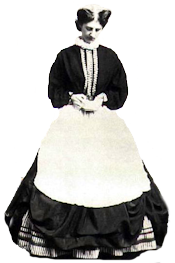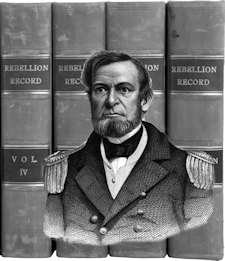Monday Jan’y 13th 1862
Colder today. M. this morning down to 34, tonight at 28. Have been in the office all day, moved into another room today on the Land office. A Brother of Geo D Prentice of the Louisville Journal is at the next desk to mine. Mr Rickets & Mr Osgood are also in the same Room, no. 10. The Room I left, no. 9, contained Mr Swan, Mr Darnell, both of Indiana, Mr Georgii (a German, from Minesota), Mr Ostrander of N York City, Mr Barnes of Detroit, and Mr Wheelock of California. It is said tonight that Mr Cameron (the Sec’y of War) has resigned, hope it is true. I called at Mr Pecks this evening. They have a very sick boy, have been at home the rest of the time. It is my Birth day today, fifty six years old. What a rough, smooth, sorrifull, pleasant, up hill, and down hill, road I have trodden for forty years past, such is life. I bear my years extremely well being perfectly healthy and quite active and spicy and walk with as quick a step as I ever did and am usualy taken by strangers for a man of 45 years. My eyes are bright, teeth good and my hair (thanks to Prof Wood) is not much grey. We are living very quietly this Winter, Self, Wife, Julia & the three boys. H N Junior, about 15, rather pale and languid, not very robust, pretty good schollar. Halsey C., 12, all motion and activity, never idle, impatient of restraint, quick to learn when he tries, impetuous, all “go ahead.” Willie, 8, dark hair & eyes, a ceaseless talker, ambitious to know everything, always asking questions, always busy, never sitting still like “Bud.” “Willie” & “Holly” are much alike in their disposition. Julia, 17 in March, is willing to take things as they come, rather inactive, somewhat indolent in her habits, but growing fast, quite handsome, quick tempered naturaly, but kind hearted and governs her spirit quite well, does not like study much, reads & writes most of the time.
______
The three diary manuscript volumes, Washington during the Civil War: The Diary of Horatio Nelson Taft, 1861-1865, are available online at The Library of Congress.











